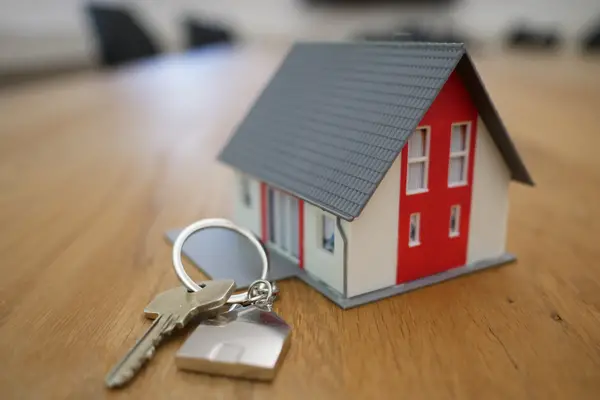
When you buy your first house or your next house, you want to make sure you don’t pay anymore than is necessary. However, not everyone is happy to make offers at below asking price.
So how to make an offer on a house below asking price?
- Do your research
- Know how long houses have been on the market.
- Know the vendor’s reason for selling.
- Get your finance in place.
- Set up the offer before viewing.
- Play it cool at viewings.
- View lots of houses.
- Sell beforehand.
- Leave offers on the table.
- Be prepared to walk away.
Let’s take a look at each of these ideas in more detail.
1. Do your research of the local housing market before making any offers at below asking price
The key to making offers at below asking price is to know your market. You need to know how much properties of the type you are looking to buy are worth. But before you read any further, I highly recommend you read this article: Why estate agents valuations vary so much.
The asking price is not necessarily how much a house is worth. It’s certainly not a valuation of the house. Which means if you’ve done your research you will know when a property is over priced. But equally you’ll be able to spot a bargain too.
Estate agents get it wrong both ways and sometimes under-price houses. But the under-priced house might reflect the vendors position, meaning they have priced their house to sell quickly. If you find a property priced to sell at under market value, you want to be able to move fast. (See point 8 below).
2. Knowing how long a house has been on the market will help you to make an offer below asking price
A house that’s been on the market for a long time is a key indicator it’s over-priced. Knowing a house has been listed for over a 4-6 weeks gives you a negotiation tool. The longer a house is on the market, the more desperate sellers get and need to sell.
If the property is listed on Rightmove you can find this out here. But if the price has changed since it was listed, the date on Rightmove reflects the change date instead of the original listing date. But I have you covered! Take a read of this article and in particular this section “can you see price history on Rightmove?” You’ll find a link to a great tool that will show the complete history. This includes the original listing date.
If a property isn’t listed on Rightmove, ask the estate agent how long it has been on the market. I would also recommend you ask them to explain why it isn’t selling.
3. Knowing the vendor’s reason for selling before offering helps your negotiation advantage
It’s always advisable to know the vendor when you are buying a house. By having a better understanding of why they are selling can give you an advantage when you offer.
For example, if the vendors are selling to move overseas. Or perhaps if they are going through a divorce. In these examples they are more likely to be keen to get the sale done quickly.
Therefore, if you are in a strong buying position to move quickly (see point 8 below), sellers who are looking to sell quickly will be more willing to accept an offer from you. But more importantly, they are more likely to accept an offer at below asking price.
Therefore, you should always ask the estate agent why they are selling. Don’t necessarily trust the agent’s answer. If the vendor is at the viewing you can explore their reason for selling with them. But be careful with this and be diplomatic. Especially if they are selling for what might be classed as a sensitive reason.
4. Getting your finance in place will help you to move quickly after an offer is accepted at below asking price
It’s not always possible to know exactly how much you’ll need to borrow. But you will be able to get a mortgage agreed in principle. For all properties I buy I always use a mortgage broker. I recommend you do the same.
A mortgage broker will be able to better match you and your personal financial position with the type of property you wish to buy, along with the level of borrowing and cost thereof. It will cost in terms of a broker fee. But usually a good mortgage broker should be able to recoup for you their fee in what they can save you by finding a good mortgage deal.
But also, you will be able to get your mortgage broker to organise an agreement in principle too. This will help you to move things a bit quicker when you get an offer accepted. But also, you can let the estate agent know you have a mortgage in principle too. This will give confidence to the seller to accept your offer.
5. Set up the offer at below asking price on a house before viewing the property
This tip is one used by investors for getting investment properties at below market value. It works by teeing-up the offer before you even view the property. When you find a property you are considering to view, speak with the estate agent about how much you can afford.
For example, let’s say you find a property listed for £275,000 but you only want to pay £250,000 for it. Ask the estate agent if it’s worth viewing the property if you can only afford to pay £250,000.
What you are effectively asking the estate agent is if they know whether the vendors are willing to take a lower offer. If the agent agrees to this arrangement, it won’t then come as a surprise when you offer £250,000 or less.
Also, you know before you even view the property that the sellers are prepared to accept less than asking price.
6. Play it cool at viewings so the vendor doesn’t know you’re interested
When you view a house, it’s important you don’t give the game away. The last thing you want the vendor to know is that you’ve fallen in love with their house. If they know this, they are less likely to accept a low offer. They are more likely to play hard-ball if they know you love the house.
However, on the flip side of this is how hard this will make it for you. If you have genuinely fallen in love with the house you will find it much more difficult to walk away from the house. See point 10. below.
7. View lots of houses and make multiple offers
The best approach to making an offer on a house at below asking price is to view lots of properties. By doing so it will give you a better understanding of the local housing market. But it will also provide you with more opportunities to find the right house to offer below asking price.
Also, if you make multiple offers on a number of houses you are more likely to have at least one accepted. However, I accept this approach works well if you are an investor. However, I appreciate it may not necessarily work as well when you’re buying your own house to live in.
8. Sell your house and rent before buying again puts you in a strong position when making offers on houses at below asking price
Not only does selling your house and renting before buying again put you in a great buying position, it also significantly reduces the stress of buying and selling a house. If this is you, you might like to read this article on how to deal with the stress of selling your house.
Whenever my wife and I are buying a house to live in, we always sell our current house first. We then move into rented accommodation whilst we look for out next house. This puts us in a much stronger buying position.
I’m sure you understand that given the choice between two buyers, most vendors will choose the buyer who’s not in a chain vs the buyer who has a house to sell. This is even often the case where the buyer in a strong position is offering less for the house.
If you are keen on this approach to buy your next house, but more importantly you want to be in a better position to be able to make an offer on a house at below asking price, I suggest you take a read of this article. In this article I list the 15 advantages of selling your house and renting before buying again. But then I also list the 10 disadvantages as well.
Further to point 1. above, if you find a property priced to sell at under market value, if you haven’t got a house to sell yourself, you are better placed to capitalise on the opportunity.
9. Leave offers on the table when they are rejected
If your offer is rejected by the vendor you should always tell the estate agent your offer stands. If no other buyers come forward with an offer, the vendors may relent over time and come back to you.
They may still try to haggle the price, but if they’ve not had any offers at all other than yours, your offer may seem more attractive. This is certainly more likely if the vendors start getting desperate to move. But even more so if they find somewhere to move to. Once sellers find a place they want to buy, they’ll need to sell their house to be able to make an offer.
This point ties in well with the next point. Which is for this to work well, you need to be prepared to walk away from the house.
10. Be prepared to walk away when your offers are rejected
This is possibly one of the hardest points for most people to follow in order to make an offer on a house below asking price. It’s much easier to do if you are buying an investment property, as there’s no emotion attached to the purchase.
However, if you are buying your next home, there’s emotion involved as you’ll be living in the property. This is what makes it even harder to walk away, especially if you’ve fallen in love with the house concerned.
But the truth be known that often times the only way to buy a property at below asking price is if you are prepared to walk away.
How much should you offer on a house below asking price?
How much you choose to offer below asking price is up to you. I certainly recommend you take a read of this article on what % is a cheeky offer on a house and is it OK to offer less than asking price.
As a guide I would suggest that your offer is at least 10% off the asking price. This will make it worth your while. But bear in mind, the bigger the amount below asking price, the more likely it will be rejected. Plus be prepared that some vendors get upset with low-ball offers.
As a further guide and on a sliding scale, the longer a house has been on the market, the lower the offer can be. But just because a house has been on the market for a long time, doesn’t necessarioy mean the vendor will accept a below asking price offer.
The other factor that will impact on how much you can offer on a house below asking price is its state of repair. If a house is in need or renovation or it’s tired and needs a new kitchen and bathroom, this will impact on how much it’s worth.
Often times a house that requires work will already be listed at below the price of a similar house that’s up together.
Another factor that will affect whether your offer at under asking price will be accepted is market conditions. You are more likely to get a below asking price offer accepted if its a buyer’s market. Whilst on the other hand you are less likely to get offers accepted at under asking price in a sellers market.
What about negotiating the price after an offer has been accepted?
There’s nothing to stop you from negotiating the house price after an offer has been accepted. This is especially the case if the survey has picked up remedial work to be done on the property.
If the survey has picked up a problem, you need to decide whether you are happy to proceed with the purchase. If you are, then it’s only fair that your offer is reduced to reflect the cost of the necessary works.
The other reason you may renegotiate the price is if the mortgage valuation comes back at below what you offered. However, this shouldn’t happen if you’ve done your research in the first place. If you have, your offer shouldn’t be more than what the property is worth.
Conclusion on how to make an offer on a house below asking price…plus asking price vs the selling price
To conclude on how to make an offer on a house below asking price is you need to decide on what the house is worth to you.
The asking price vs the selling price and the difference between these two numbers reflects what a house is worth to the buyer vs what it’s worth to the seller.
Every house will sell at the right price. All it takes is a willing buyer and a willing seller. The willing buyer must meet the willing seller at some agreed point in the middle. Which ultimately becomes the buying price.
I hope you’ve enjoyed this article about how to make an offer on a house below asking price
If you’ve enjoyed this article about “how to make an offer on a house below asking price” please share it on your favourite social media site.
Also, if you have any questions, please feel free to comment below too. Alternatively, if you need more help, please feel free to contact us on our contact us page here. Or join the discussion and ask your question in the property forum.




